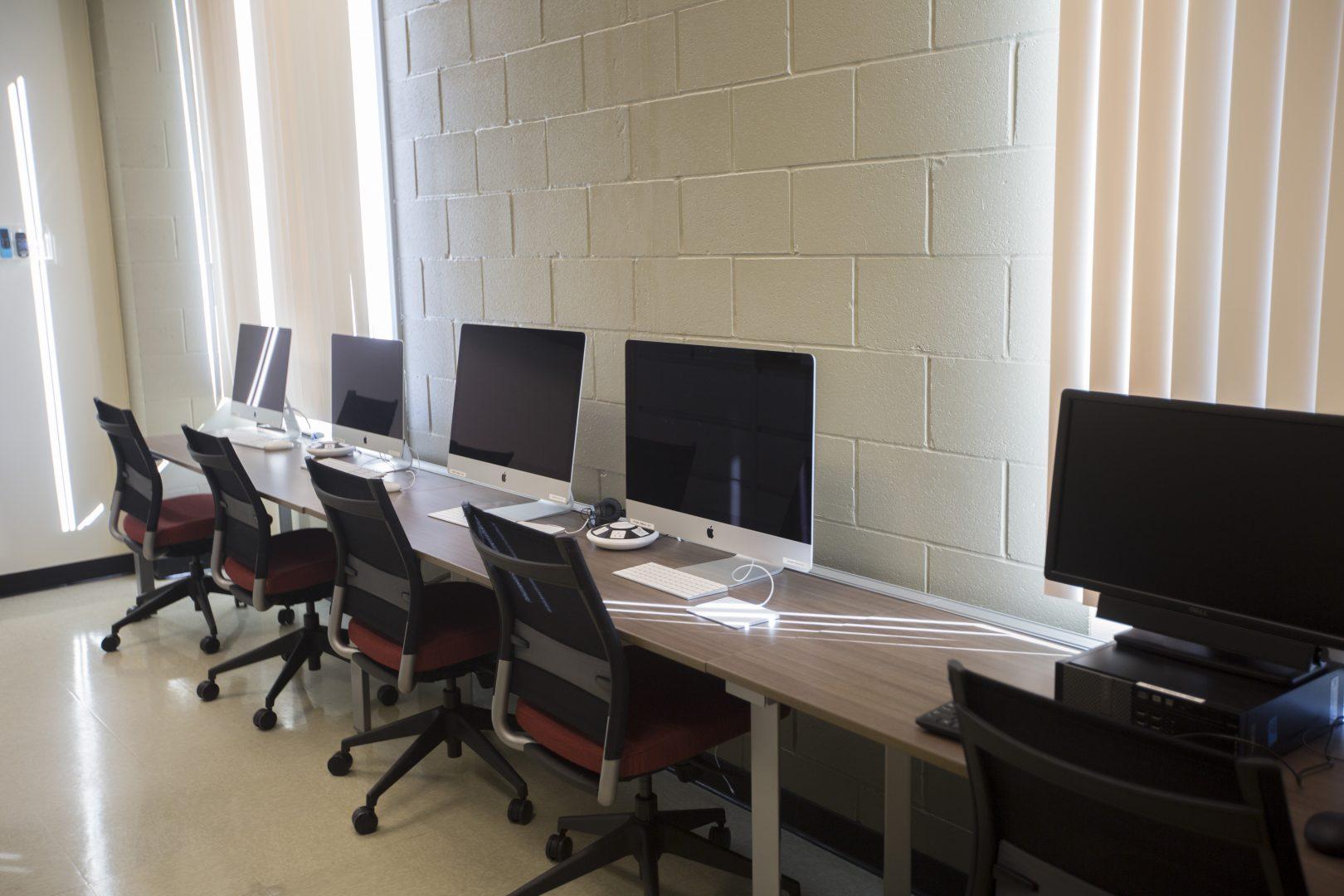Criminology students are getting hands-on experience with a new lab in their department.
Fresno State students and faculty in the criminology department were used to consulting with professors at their offices or in general classrooms. But this semester, the new Forensic Behavioral Science lab is available to help in their studies.
Dr. Jenna Kieckhaefer and Dr. Peter English, professors in the forensic behavioral sciences (FBS) option of the criminology department, are co-directors of the lab, which opened Sept. 15.
The FBS lab, located in rooms 148, 150 and 152 in the Science II Building, consists of two faculty offices converted into one larger room for a data entry area and storage of study participant information, Kieckhaefer said.
A third office is furnished with computer stations and an interviewing table for research and one-on-one interactions.
“We also have the ability to run research studies that need to be at a computer,” Kieckhaefer said. “But mostly, it’s probably going to be for data analysis, transcribing, just so multiple people can work in here at once.”
Kaylee Jones, a junior in the FBS option, said she spends time in the lab working on a class research project and assisting Kieckhaefer in her own research of the effects of police rapport in interviewing a cooperative witness.
Much of her work in the lab, Jones said, has consisted of going through transcripts and spreadsheets, collecting survey responses and categorizing information and questions.
Jones is studying rates of sexual harassment and sexual assault within the LGBTQ community. She said she distributed an anonymous survey on campus and through social media. This class project is a pilot that she hopes to expand into a further study, Kieckhaefer said.
“I also hope to maybe get a look at the education on sexual assault and what you can do if you’ve experienced it, or a friend, because it seems like a lot of victims just didn’t know what they could do or that they could do anything at all,” Jones said. “I was inspired by the #MeToo campaign for my research.”
The lab is open to faculty and student research assistants. Students are required to fill out volunteer paperwork, complete the human subjects online training module through the Institutional Review Board and undergo a background check in order to be allowed access to the lab, Kieckhaefer said.
“It’s important for sensitive information, so it’s crucial that we have password-protected computers, the locked room, the locked doors, and that we monitor who has access to this space because it’s all confidential information,” she said.
Kieckhaefer and English, the criminology professors, said they are looking into getting more research equipment for the lab, including video cameras, recording equipment and an eye-tracker, which tracks and records the movement of eyes scanning a visual scene.
English said the lab gives students the opportunity “to get their hands dirty” doing research from the beginning stages of experimental design, to data collection, to writing results that will hopefully lead to publication.
“It started to provide students the opportunity to do research and [has] given faculty a chance to do the kinds of research upon which the FBS discipline is based,” English said. “It’s going to put our FBS students particularly in better positions for graduate school, which is critical if they really want to do professionally what they have gotten a taste of in the FBS lab.”




